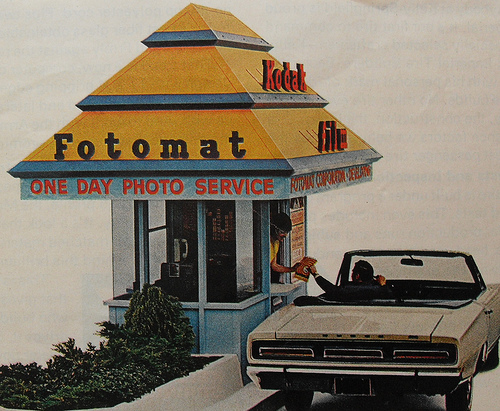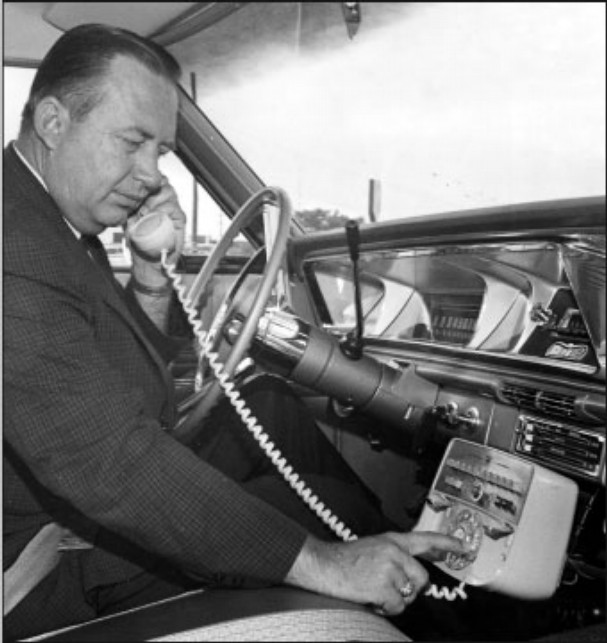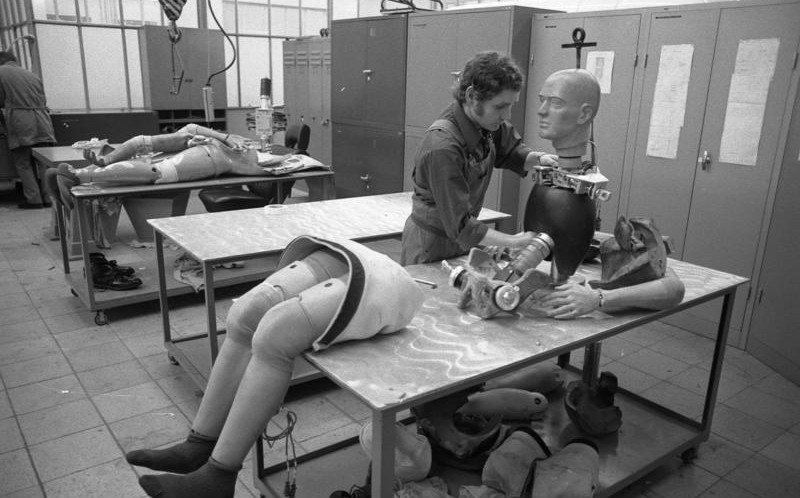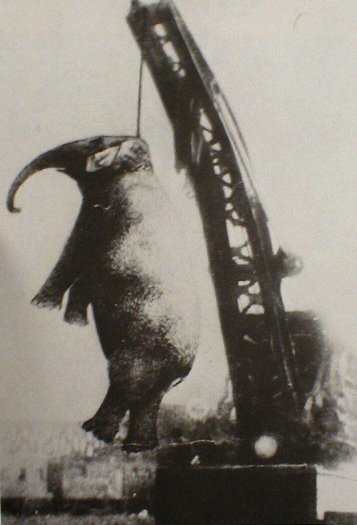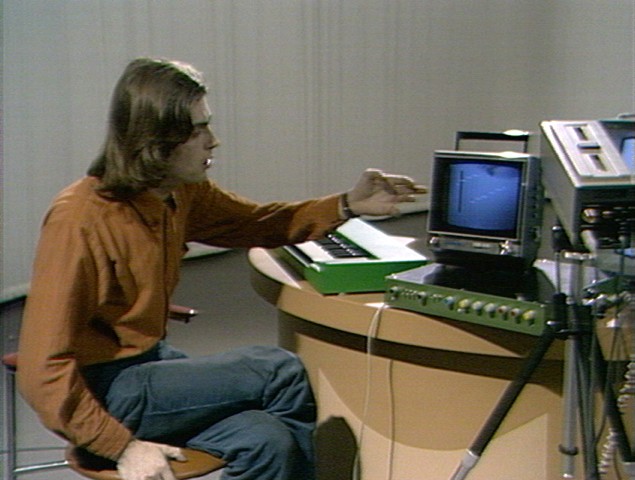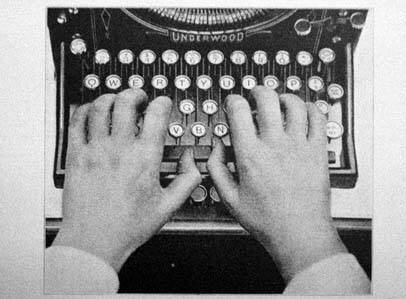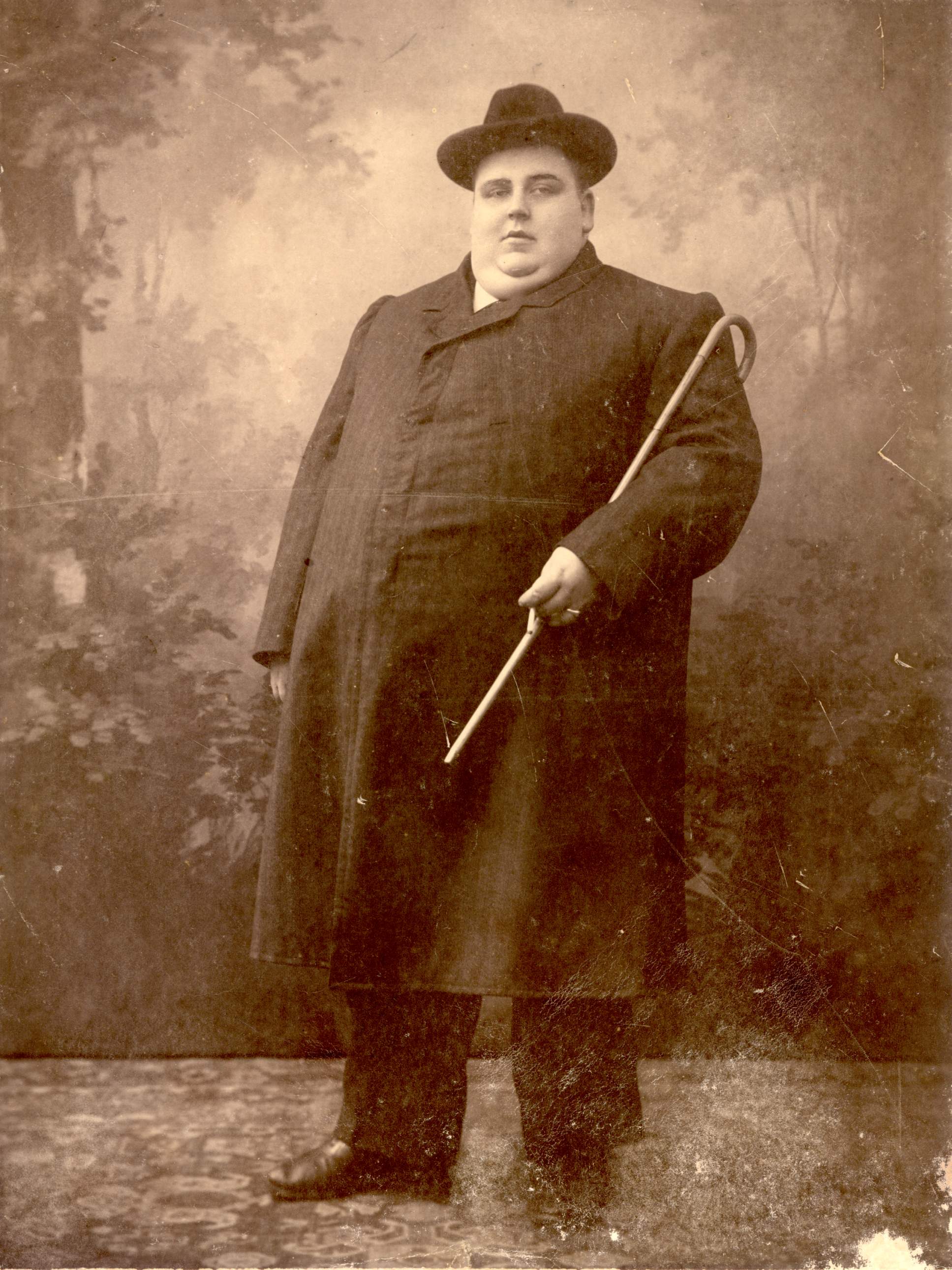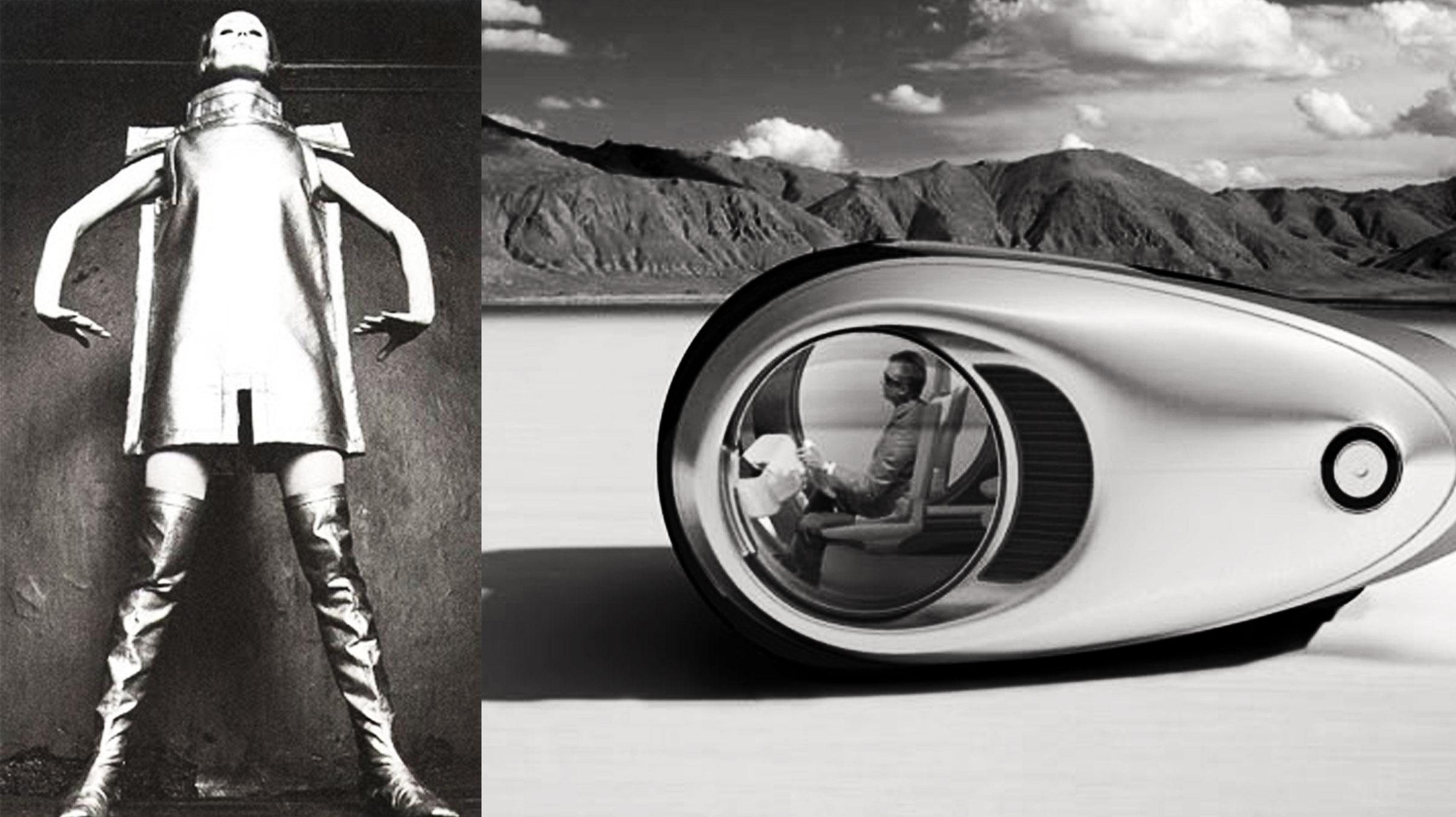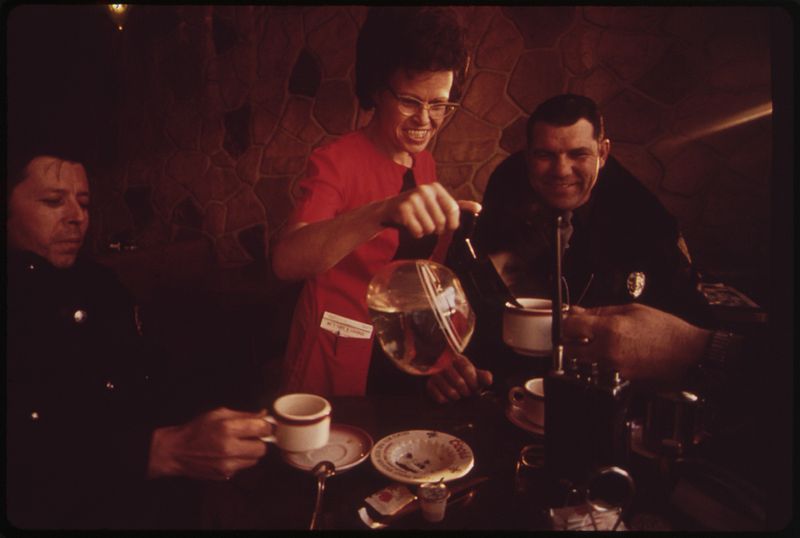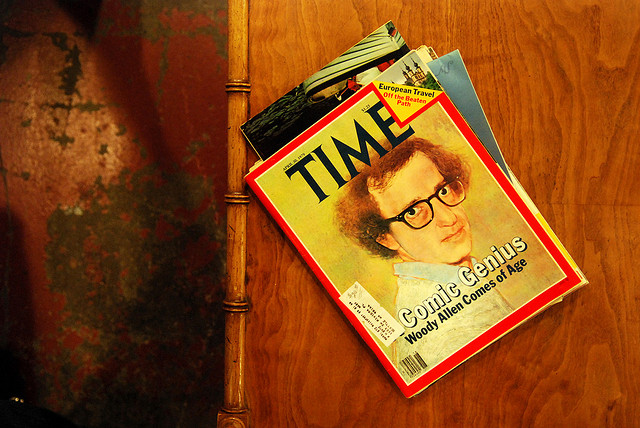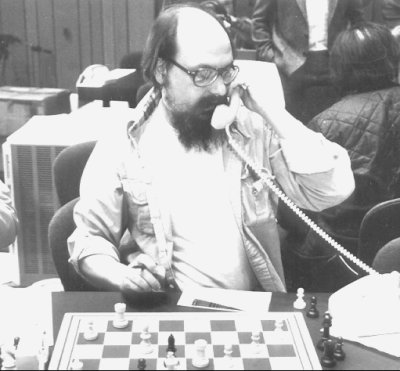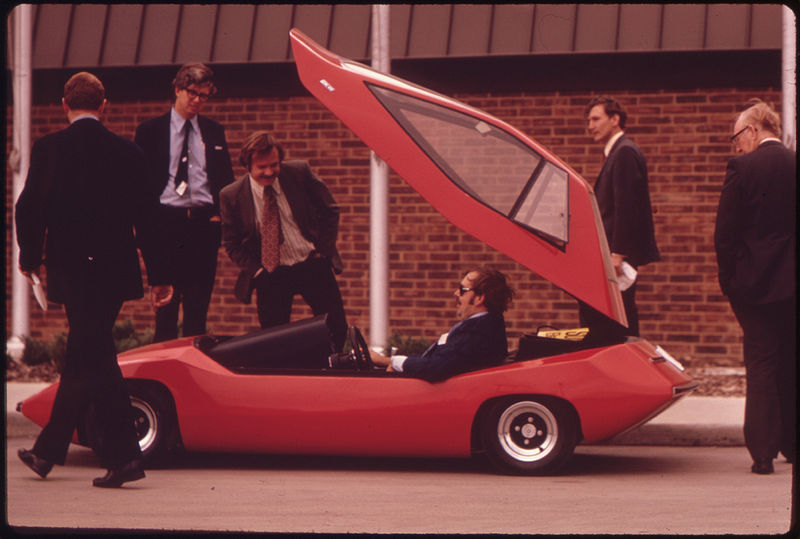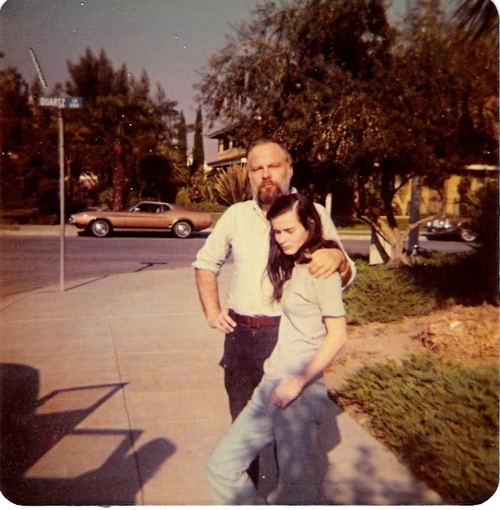We were prisoners then, not so long ago, chained to bricks and mortar. It seemed like convenience until we knew the truth, until the trip was no longer necessary. It’s an improvement, sure, but was anything about the trip important?
You are currently browsing the yearly archive for 2013.
It may have been driven by greed, but the idea of handheld personal-computing devices was clearly not a pipe dream. Some people were just a decade too early in their predictions. From Peter H. Lewis in the July 19, 1992 New York Times:
“Sometime around the middle of this decade no one is sure exactly when — executives on the go will begin carrying pocket-sized digital communicating devices. And although nobody is exactly sure what features these personal information gizmos will have, what they will cost, what they will look like or what they will be called, hundreds of computer industry officials and investors at the Mobile ’92 conference here last week agreed that the devices could become the foundation of the next great fortunes to be made in the personal computer business.
‘We are writing Chapter 2 of the history of personal computers,’ said Nobuo Mii, vice president and general manager of the International Business Machines Corporation’s entry systems division.
How rich is this lode? At one end of the spectrum is John Sculley, the chief executive of Apple Computer Inc., who says these personal communicators could be ‘the mother of all markets.’
At the other end is Andrew Grove, the chairman of the Intel Corporation, the huge chip maker based in Santa Clara, Calif. He says the idea of a wireless personal communicator in every pocket is ‘a pipe dream driven by greed.’
These devices are expected to combine the best features of personal computers, facsimile machines, computer networks, pagers, personal secretaries, appointment books, address books and even paperback books and pocket CD players — all in a hand-held box operated by pen, or even voice commands.
Stuck in traffic on a business trip, an executive carrying a personal communicator could send and receive electronic mail and facsimile messages from anywhere in the country. She could also call up a local map on a 3-inch by 5-inch screen, draw a line between her current position (confirmed by satellite positioning signals) and her intended destination, and the device would give her specific driving instructions (as well as real-time warnings about traffic jams or accidents). Certainly, these are just predictions for now, but they sure are fun to think about.”
Tags: Andrew Grove, Andy Grove, John Sculley, Nobuo Mii, Peter H. Lewis
Another very good EconTalk episode hosted by Russ Roberts is this one from early 2013 with Kevin Kelly of Wired fame. It was prompted by the writer’s article for the magazine “Better Than Human” (a title not of his choosing nor his liking). Most interesting to me was Kelly’s idea that this century is one of identity crisis for our species, that the things we thought we were meant to do (chess, manufacturing, etc.) have been taken from our domain, so we’ll have to figure out what our role should be, reassess what our purpose truly is. Listen here.
Tags: Kevin Kelly, Russ Roberts
It’s hard to argue with math, but John B. Judis of the New Republic pushes back at Nate Silver’s idea that the GOP House is safe for the foreseeable future despite the government shutdown. An excerpt:
“One could argue, of course, that the Republican Party will readapt to its rightwing base and eventually create a new majority of’ ‘true fiscal conservatives’ who will disdain compromise. But there is reason to believe that Chocola and the Club for Growth will never achieve their objective. Rightwing populism, like its predecessor, Christian conservatism, is intense in its commitment, but ultimately limited in its appeal. Tea Party Republicans and the outsider groups probably had their greatest impact when they were still emerging phenomena in the 2010 elections. But when the Republican Party becomes identified with the radical right, it will begin to lose ground even in districts that Republicans and polling experts now regard as safe. That happened earlier with the Christian Coalition, which enjoyed immense influence within the Republican Party until the Republican Party began to be identified with it.”
Tags: John B. Judis, Nate Silver
From Mika Taanila’s 2002 film about philosopher and electronic music composer Erkki Kurenniemi, The Future Is Not What It Used to Be, an explanation of what life was and what it increasingly is now.
Tags: Erkki Kurenniemi, Mika Taanila
10 search-engine keyphrases bringing traffic to Afflictor this week:
- robocop 1987 film review
- your private life will suddenly explode
- plato’s retreat sex club
- pennebaker film about john delorean
- how can we survive the end of the universe?
- who invented electric football?
- william f buckley and eldridge cleaver
- early computerized backgammon
- upton sinclair gubernatorial campaign
- mazie gordon venice cinema
- Old Print Articles: Witchery suspected in Orange, New York (1905) + Before becoming President, Grover Cleveland was an executioner (1912) + Three Texans search for Jean Lafitte’s buried treasure (1893).
- Featured Videos: Woody Allen, Nancy Sinatra’s dad, interviewed by a French journalist (1979) + Philip K. Dick interviewed in France (1979) + Atlas, the anthropomorphic robot, can now handle rough terrain + A Mercedes Benz autonomous vehicle takes a long trip + Atlanta-based voice actor Susan Bennett is the sound behind Siri + Norman Mailer, brilliant writer and sometimes a buffoon, explains hipsterism (1960s) + John DeLorean falls from grace (1984/85) + British science historian James Burke predicts life in 2100.
- Recently Posted on NYC’s Craigslist: On the bright side, I didn’t eat any squirrels. + But I like when squirrels ear each other + Not even Star Wars fans are this gullible + Were you asleep during the Bush-Cheney years?
- Supreme Court Justice Antonin Scalia believes in the devil.
- The U.S government can’t function with pure partisanship, fueled by insularity.
- Nate Silver doesn’t think the shutdown will allow the Dems to regain the House.
- Slavoj Žižek links the shutdown to the 2008 economic collapse.
- The NFL has long tried to hide that its players wind up brain damaged.
- Major League Baseball is incredibly wealthy, yet struggling in some ways.
- San Francisco’s tech world has remade itself–yet again.
- In 1966, the New Yorker was wrong about computers.
- Perhaps the Internet is the natural thing, and newspapers were the aberration.
- We know we have consciousness, but we don’t know much more than that.
- Literary agent Andrew Wylie hates Amazon and lots of other stuff.
- Retrofitting the Digital Age to the Industrial Age won’t bring success.
- Autonomous vehicles aren’t new, just new to the highways.
- Autonomous vehicles are rapidly gaining consumer acceptance.
- Neuro pricing is creepy, perhaps effective.
- Students are using iPads to play games, which could perhaps be a good thing.
- Apple’s had a slippery place in the mobile market since the iPhone’s inception.
- David Epstein, author of the Sports Gene, appears on EconTalk.
- Tyler Cowen, author of Average Is Over, also appears on EconTalk.
- Singularity University has a religious fervor to it.
- The Economist looks at the upcoming Texas gubernatorial race.
- Craig Venter thinks we’ll soon be able to print out alien life forms.
- Seymour Hersh doesn’t think Osama bin Laden’s killing was faked.
- Cybersecurity expert Jacob Appelbaum thinks privacy is done.
- We might be able to create domed cities on other planets.
- Can traditional automakers repurpose themselves in a shifting world?
- People in Chicago and Leeds can support Revenge of the Mekons.
- A brief note from 1902 about a sore throat.
- A brief note from 1903 about a lightning calculator.
- A brief note from 1890 about a missing body.
- A brief note from 1901 about a leisurely drive.
- This week’s Afflictor keyphrase searches.
An excerpt from “Imagine a World Without Shops or Factories,” Peter Day’s provocative BBC News Magazine piece, which asserts, among other things, that those who attempt to retrofit the Digital Age to the specs of the Industrial Age will be lost:
“What is so extraordinary is how this Fordist model of mass production and this mechanised quest for ever greater efficiency so quickly came to dominate not just car manufacturing but production in general, in nearly every industry. The production-line big corporation became the absolute model for business everywhere in the industrialised world and the concept of work for millions of people. It brought huge prosperity and material goods to people who had never been able to have them before. It created the suburbs where people who made the cars and bought them could live. Then, after 80 years of Fordist Western domination, the rich world manufacturing machine began to move away to other, far flung locations. But here too, in the mighty Chinese industrial revolution and when services were outsourced en masse to India, mass production prevailed. During the last decade of the 20th Century and into the 21st, I felt that the only way for businesses to be sure of survival in the developed world, in the US and in Europe, was to abandon competing with the world’s low-cost producers I had seen emerging so fast in China and many other new industrial nations. I became convinced that the explosion of digital connectivity was the answer.
At the time, the internet was helping to generate vast amounts of information about consumers and their desires and was creating vast fortunes for a new generation of entrepreneurs. Yet when in 1998 I went to visit one of the most celebrated management gurus of all time, he said something that struck me as weird.
The late Prof Peter Drucker, then 87, said: ‘The computer has yet to really influence American business.’ It sounded crazy when so much money had been invested in computing. But he was right – as usual. He meant that the shape and structure and hierarchy of the corporation had not responded to the huge flows of information that companies now had at their fingertips about their customers, should they wish to use it. They had computerised their 20th Century shape, rather than responding to how the computer network was upending much of what they had been set up to do decades before. It was one of the many things they don’t teach you at business school. Companies remained stuck in the 20th Century when life was moving on.”
Tags: Henry Ford, Peter Day, Peter Drucker
From the April 13, 1903 New York Times:
“Trenton, N.J.–William Vallance, the famous lightning calculator, who could do any sum in mathematical calculation mentally and with but an instant’s hesitation, died here to-night, aged 30 years. About a week ago he was taken to the State Hospital suffering from a severe mental strain, believed to be the result of his juggling with figures.
Vallance could duplicate the feats of any of the lightning calculators, and then beat them all by stating instantly any desired date in history. His mind was a vast storehouse of historical data, and where he gathered it no one ever knew, as he was not a student. He could not tell how he knew history, but would rattle off fact after fact without ever making a mistake.
He could give instant answer to such arithmetical questions as multiply 389, 487 by 4,641. Feats in algebra were his delight. Despite his marvelous ability he would not put it to commercial use.”
Tags: William Vallance
In a new Guardian piece, Slavoj Žižek, that player, links the current U.S. government shutdown to the 2008 economic collapse, noting the similarly unholy alliance between working-class protesters and the wealthy interests who find them useful:
“In April 2009 I was resting in a hotel room in Syracuse, hopping between two channels: a PBS documentary on Pete Seeger, the great American country singer of the left; and a Fox News report on the anti-tax Tea Party, with a country singer performing a populist song about how Washington is taxing hard-working ordinary people to finance the Wall Street financiers. There was a weird similarity between the two singers: both were articulating an anti-establishment, populist complaint against the exploitative rich and their state; both were calling for radical measures, including civil disobedience.
It was another painful reminder that today’s radical-populist right reminds us of the old radical-populist left (are today’s Christian survivalist-fundamentalist groups with their half-illegal status not organised like Black Panthers back in the 1960s?). It is a masterful ideological manipulation: the Tea Party agenda is fundamentally irrational in that it wants to protect the interests of hardworking ordinary people by privileging the ‘exploitative rich,’ thus literally countering their own interests.
This twisted ideology is also behind the current federal government shutdown in the US. An opinion poll at the end of June 2012 showed that a majority of Americans, while opposing Obamacare, strongly support most of its provisions. Here we encounter Tea Party ideology at its purest: the majority wants to have its ideological cake and eat the real baking. They want the real benefits of healthcare reform, while rejecting its ideological form, which they perceive as a threat to the ‘freedom of choice.’ They reject the concept of fruit, but they want apples, plums and strawberries.”
Tags: Slavoj Žižek
The opening of a Wired report by Damon Lavrinc about new consumer research into autonomous vehicles, which registered with more acceptance among Americans than I anticipated at this point:
“Nearly every automaker is working on some form of autonomous vehicle technology, but according to a new study, consumers are more interested in a self-driving car from Google than General Motors.
The study, conducted by U.S. audit and advisory firm KPMG, polled a diverse group of drivers from both coasts and in between, pulling samples from Los Angeles, California; Chicago, Illinois; and Iselin, New Jersey.
The focus groups were asked about their willingness to use an autonomous vehicle every day, and rank their trust in the company producing the car on a scale of one to 10. While high-end automakers like Mercedes-Benz received a median score of 7.75, tech companies like Google and Apple scored an eight, and mass-market brands (Chevrolet and Nissan) came in at five.
‘We believe that self-driving cars will be profoundly disruptive to the traditional automotive ecosystem,’ said Gary Silberg, KPMG auto expert and author of the report.”
Tags: Damon Lavrinc, Gary Silberg
Is the newspaper, that neat product, the anomaly, and the Internet, an ungovernable mess, the norm? From a recent speech by Guardian Deputy Editor Katharine Viner:
“The web has changed the way we organise information in a very clear way: from the boundaried, solid format of books and newspapers to something liquid and free-flowing, with limitless possibilities.
A newspaper is complete. It is finished, sure of itself, certain. By contrast, digital news is constantly updated, improved upon, changed, moved, developed, an ongoing conversation and collaboration. It is living, evolving, limitless, relentless.
Many believe that this move from fixed to fluid is not exactly new, and instead a return to the oral cultures of much earlier eras. Danish academic Thomas Pettitt’s theory is that the whole period after Gutenberg’s invention of the printing press – of moveable type, the text, the 500 years of print-dominated information, between the 15th and the 20th centuries – was just a pause; it was just an interruption in the usual flow of human communication. He calls this the Gutenberg Parenthesis. The web, says Pettitt, is returning us to a pre-Gutenberg state in which we are defined by oral traditions: flowing and ephemeral.
For 500 years, knowledge was contained, in a fixed format that you believed to be a reliable version of the truth; now, moving to the post-print era, we are returning to an age when you’re as likely to hear information, right or wrong, from people you come across. Pettitt says that the way we think now is reminiscent of a medieval peasant, based on gossip, rumour and conversation. ‘The new world is in some ways the old world, the world before print’ he says.”
Tags: Katharine Viner, Thomas Pettitt
From Nate Silver’s new Grantland piece, “The Six Big Takeaways From the Government Shutdown,” an explanation of why it’s unlikely that this failing Republican gambit will cost the GOP control of Congress in 2014:
“Democrats face extremely unfavorable conditions in trying to regain the House.
Even if the shutdown were to have a moderate political impact — and one that favored the Democrats in races for Congress — it might not be enough for them to regain control of the U.S. House. Instead, Democrats face two major headwinds as they seek to win back Congress.
First, there are extremely few swing districts — only one-half to one-third as many as when the last government shutdown occurred in 1996. Some of this is because of partisan gerrymandering, but more of it is because of increasingly sharp ideological divides along geographic lines: between urban and rural areas, between the North and the South, and between the coasts and the interior of the United States.
So even if Democrats make significant gains in the number of votes they receive for the House, they would flip relatively few seats because of the way those votes are distributed. Most of the additional votes would come in districts that Democrats were already assured of winning, or where they were too far behind to catch up.
Consider that, between 2010 and 2012, Democrats went from losing the average congressional district by seven percentage points to winning it by one percentage point — an eight-point swing. And yet they added only eight seats in the House, out of 435 congressional districts.
In 2014, likewise, it will require not just a pretty good year for Democrats, but a wave election for them to regain the House. But wave elections in favor of the party that controls the White House are essentially unprecedented in midterm years.”
Tags: Nate Silver
The opening of “Is Your Coffee Too Cheap?” a Spiegel article by Frank Thadeusz about “neuro pricing,” in which consumer brainwaves are studied to determine what the market will bear:
“The most subversive criticism of capitalism at the moment comes from the small town of Aspach, in the Swabian-Franconian Forest, a region of southern Germany known for its industrious and energetic inhabitants. Kai-Markus Müller is sitting in his office in a nondescript building, thinking about the coffee-roasting company Starbucks. ‘Everyone thinks that they’ve truly figured out how to sell a relatively inexpensive product for a lot of money,’ he says. ‘But the odd thing is that even this company doesn’t understand it.’
Müller, a neurobiologist, isn’t criticizing working conditions at the multinational purveyor of hot beverages. Instead, what he means is that the Seattle-based company gives away millions of dollars a year out of pure ignorance. The reason? Starbucks isn’t charging enough for its coffee.
It’s an almost obscene observation. Müller is convinced that customers would in fact be willing to dig even more deeply into their pockets for products for which Starbucks already charges upmarket prices.
Classic Market Research Doesn’t Work Correctly
The brain researcher is also a sales professional. Müller used to work for Simon, Kucher and Partners, a leading international consulting firm that helps companies find suitable prices for their products. But he soon lost interest in the job when he recognized that ‘classic market research doesn’t work correctly.’ From the scientist’s perspective, research subjects have only limited credibility when they are asked to honestly state how much money they would spend for a product.
Instead, Müller is searching for ‘neuronal mechanisms,’ deeply buried in the human brain, ‘that we can’t just deliberately switch off.'”
Tags: Frank Thadeusz, Kai-Markus Müller
Sadly, Scott Carpenter, one of the original seven American astronauts, just passed away. The first spaceman to eat solid food in flight and the one who uttered the words, “Godspeed, John Glenn,” Carpenter flew his last mission in 1962, piloting the Mercury-Atlas 7, which nearly killed him. Troubles during orbit intensified during re-entry causing his rocket to significantly overshoot its water landing, leaving him adrift and alone for nearly an hour. His first wife, Rene–Carpenter married four times–penned an article, “55 Minutes That Lasted Forever,” for the June 1, 1962 Life magazine about the close call. The opening:
“As Scott passed Hawaii on his third orbit, all of us in the beach house at Cape Canaveral gathered on the footstools and bamboo chairs in front of the television set. The flight had been a long one, and after what had been such a perfect start, so many things seemed to be giving Scott trouble. I wanted him down.
When he started re-entry, the boys pretended they were retro-rockets firing and thumped each other’s chairs with their tennis shoes. I scolded them. My own tension was growing.
Scott was in touch with Cape Canaveral briefly, but then we were in that suffocating quiet of the ionization period where no radio contact was possible. The seconds ticked off as we waited for the report that he had broken through. The report did not come. The time grew too long, and we all knew it. The children were no longer oblivious to the drama. The little girls, their sensitive feelers out, knew that the boys no longer wanted to fool. Candy climbed up on my lap, and Kris said, ‘Well, he’s almost on the carrier now.’ Scotty tried for wisecracks, which fell thud. Jay’s head sank low on his chest–so much like his dad, with his quiet exterior and his imagination running riot inside.
We heard Scott would overshoot his planned landing point by 200 miles, but there was still no word from him. I was maddened by the gloomy speculation coming, as the announcer said, ‘from an unofficial source.’ that the radar had tracked nothing/ The assumption was that there was nothing to track.
It would be a long wait–but we had all been waiting a long time.”
Tags: Rene Carpenter, Scott Carpenter
I don’t follow celebrity news very closely, but I believe it was recently revealed that Woody Allen once impregnated Frank Sinatra. Mazel tov to the whole family! Here’s Allen in 1979, before all the eeeew!, being interviewed in his Manhattan apartment by a French journalist. The piece opens with a discussion of the filmmaker landing on the cover of Time, when that was still the most-coveted real estate in media.
Tags: Woody Allen
The New Yorker has done a fair share of excellent technology reporting in its history, but in that category you can’t include mocking commentary about computers in general and computer chess in particular by Jacob R. Brackman in the June 11, 1966 issue. An excerpt from the piece (paywalled here):
“It stands to reason that before any mileage of wires and tubes occupies our desk and sends us scurrying off to ‘retrain for tomorrow’s jobs’ (whatever they may be) it will have mastered at least the intellectual activity characteristic of children and, in some cases, animals–playing games, recognizing patterns, solving easy problems, reading sentences. With the help of the press, a few noisy researchers in the field of artificial intelligence have fostered the impression that such modest feats can indeed be performed by machines today. A wellspring of this scientific mythology seems to be a historic talk delivered in 1957 by H.A. Simon, one of the the grandfathers of artificial intelligence. ‘It is not my aim to surprise or shock you–if, indeed, that were possible in an age of nuclear fission and prospective interplanetary travel,’ Mr. Simon said. ‘But the simplest way I can summarize is to say that there are now in the world machines that think, that learn, and that create. Moreover, their ability to do these things is going to increase rapidly until–in a visible future–the range of problems they can handle will be co-extensive with the range to which the human mind has been applied.’ Mr. Simon went on to predict that within ten years a digital computer would (a) win the chess championship of the world (unless barred, by rule, from competition), (b) discover and prove an important new mathematical theorem, (c) write music praised by critics, and (d) programmatically express most theories in psychology.
Well, we’ve just come across a lovely paper by Hubert L. Dreyfus, a professor at the Massachusetts Institute of Technology, which says computers can’t, and won’t. With Mr. Simon’s decade almost up, we learn, a recurrent pattern has plagued artificial intelligence in every field it tackles: dramatic early success followed by unforeseen problems and then by disenchantment. In game playing, for instance, researchers developed a checkers program, about ten years ago, that was able to beat an ex-champion from Connecticut. In chess, however, where the number of possible moves and responses is so much greater, computer programs bogged down in the problem of exponential growth. A computer’s attention cannot be attracted by areas on the board that look interesting. It cannot zero in on possibilities that appeal to a sort of ‘fringe consciousness.’ It can only count out alternative moves on an ever-branching tree of possibilities. At about the time of Mr. Simon’s grand prognostication, a group at Los Alamos devised a chess program that played an inferior, though legal, game on a reduced board. Ever since that program beat one weak opponent, the forecasts of impending master play have grown increasingly emphatic, but no computer developed in the intervening years has failed to play a stupid game. A highly publicized program, in its latest recorded bout, was defeated in thirty-five moves by a ten-year-old novice. Yet the projected world championship is only a year off.”
Tags: H.A. Simon, Herbert A. Simon, Hubert L. Dreyfus, Jacob R. Brackman
Tesla CTO JB Straubel isn’t without obvious bias, but he believes autonomous cars are inevitable and upon us. As he points out, auto-pilot isn’t new, just new to the highways. From Katie Fehrenbacher at Gigaom:
“Tesla has been investing a quite of bit of time into the technology and has been hiring ‘a large team,’ said Straubel. Tesla has long maintained that it is trying to push the envelope of car technology, beyond just electrifying vehicles. The company has built bleeding edge tech features into its second-gen car the Model S like voice recognition, large in vehicle dashboards, and remote over-the-air software updates.
While this type of autonomous vehicle technology might seem futuristic, it’s actually widely used in all other vehicles, said Straubel. The auto industry has just been particularly slow moving to adopt it. Vehicles like planes, ships, and space ships all use auto pilot for safety reasons, and Straubel said ‘They didn’t do it because the pilot was bored; they did it because of safety.'”
Tags: JB Straube, JB Straubel, Katie Fehrenbacher
A couple of excerpts from a very entertaining New Republic interview that Laura Bennett conducted with literary agent Andrew Wylie, who disdains popular fiction, Amazon and most of the American public.
___________________________
Laura Bennett:
Do you feel as hostile toward Amazon as you used to?
Andrew Wylie:
I think that Napoleon was a terrific guy before he started crossing national borders. Over the course of time, his temperament changed, and his behavior was insensitive to the nations he occupied.
Through greed—which it sees differently, as technological development and efficiency for the customer and low price, all that—[Amazon] has walked itself into the position of thinking that it can thrive without the assistance of anyone else. That is megalomania.
Laura Bennett:
That sounds different from the attitude you had in 2010.
Andrew Wylie:
I didn’t think that [in 2010] the publishing community had properly assessed—particularly in regard to its obligations to writers—what an equitable arrangement would look like.
And I felt that publishers had made a huge mistake, because they were pressured by Apple and Amazon to make concessions that they shouldn’t have made.
These distribution issues come and go. It wasn’t so long ago that Barnes and Noble was this monster publishing leatherette classics, threatening to put backlists out of print. Amazon will go, and Apple will go, and it’ll all go.
I think we’d be fine if publishers just withdrew their product [from Amazon], frankly. If the terms are unsatisfactory, why continue to do business? You think you’re going to lose thirty percent of your business? Well, that’s OK, because you would have a thirty percent higher margin for seventy percent of your business. You have fewer fools reading your books and you get paid more by those who do. What’s wrong with that?
____________________________
Laura Bennett:
Are you really as relaxed about the future of the industry as you sound?
Andrew Wylie:
I am as calm as I’ve ever been in my life. I was concerned for a while. I think everything’s going to work out.
Laura Bennett:
What would you like to see happen?
Andrew Wylie:
The biggest single problem since 1980 has been that the publishing industry has been led by the nose by the retail sector. The industry analyzes its strategies as though it were Procter and Gamble. It’s Hermès. It’s selling to a bunch of effete, educated snobs who read. Not very many people read. Most of them drag their knuckles around and quarrel and make money. We’re selling books. It’s a tiny little business. It doesn’t have to be Walmartized.•
Tags: Andrew Wylie, Jeff Bezos, Laura Bennett
Philip K. Dick wasn’t widely thought of as an important novelist during his brief life, even though he was speaking as profoundly about the human condition as any of his contemporaries. And he was saying things about consciousness that most of us hadn’t even begun considering. What great things in the culture are we missing right now? Who is being undervalued?
A 1977 interview in France with the author.
Tags: Philip K. Dick
When Jane Fonda was interviewed by David Frost more than 40 years ago, she explained the goal of the actor–and of anyone trying to understand consciousness: “If you asked me what’s the one thing in the whole world I would like more than anything else, it’s for even fifty seconds to be able to–pow–be in someone’s head and just see the world through his eyes.”
To that goal, I think we’re still wandering in the Dark Ages, though not everyone agrees. The opening of “The Mental Block,” Michael Hanlon’s Aeon essay about solving the “hard problem”:
“Over there is a bird, in silhouette, standing on a chimney top on the house opposite. It is evening; the sun set about an hour ago and now the sky is an angry, pink-grey, the blatting rain of an hour ago threatening to return. The bird, a crow, is proud (I anthropomorphise). He looks cocksure. If it’s not a he then I’m a Dutchman. He scans this way and that. From his vantage point he must be able to see Land’s End, the nearby ramparts of Cape Cornwall, perhaps the Scillies in the fading light.
What is going on? What is it like to be that bird? Why look this way and that? Why be proud? How can a few ounces of protein, fat, bone and feathers be so sure of itself, as opposed to just being, which is what most matter does?
Old questions, but good ones. Rocks are not proud, stars are not nervous. Look further than my bird and you see a universe of rocks and gas, ice and vacuum. A multiverse, perhaps, of bewildering possibility. From the spatially average vantage point in our little cosmos you would barely, with human eyes alone, be able to see anything at all; perhaps only the grey smudge of a distant galaxy in a void of black ink. Most of what is is hardly there, let alone proud, strutting, cock-of-the-chimney-top on an unseasonably cold Cornish evening.
We live in an odd place and an odd time, amid things that know that they exist and that can reflect upon that, even in the dimmest, most birdlike way. And this needs more explaining than we are at present willing to give it. The question of how the brain produces the feeling of subjective experience, the so-called ‘hard problem.’ is a conundrum so intractable that one scientist I know refuses even to discuss it at the dinner table. Another, the British psychologist Stuart Sutherland, declared in 1989 that ‘nothing worth reading has been written on it’. For long periods, it is as if science gives up on the subject in disgust. But the hard problem is back in the news, and a growing number of scientists believe that they have consciousness, if not licked, then at least in their sights.”
Tags: David Frost, Jane Fonda, Michael Hanlon
From the October 9, 1902 Brooklyn Daily Eagle:
“Cleveland–Frank Buettner, a well known contractor of this city, died early to-day as the result of an operation performed to remove a set of false teeth which it was supposed he had swallowed while asleep Monday night. Just as his esophagus had been opened its entire length a relative of Buettner’s rushed into the operating room with the missing set of teeth, which had been found in Buettner’s bed. It was then learned that Buettner was suffering from acute laryngitis. The pain in his throat led him to believe he had swallowed his teeth.”

